Many photographers view AI image creators as harmless tools, believing there's nothing to be concerned about. However, some argue that these AI systems have the potential to replace most photographers sooner than we think, and I have to agree.
Unless you've been living under a rock this past year, you've probably witnessed the impressive capabilities of image creators powered by artificial intelligence (AI). Companies like DALL-E, Stable Diffusion, and Midjourney have generated millions of images that, even to the trained eye, appear like real photographs. These creations are generated in a matter of seconds, simply by entering a few words as a prompt. No cameras or photographers are required anywhere in the process.
Many people are understandably captivated by the wonder of these programs, but may not fully grasp the significant impact they will have on various visual artists, including photographers. I have personally witnessed many creatives downplay AI as just another tool, but unlike many helpful aids photographers use to streamline their workflow, this latest "tool" has the potential to entirely eliminate the need for photographers altogether. Artist Steven Zapata recently addressed this very issue in his video, where he presents several counterarguments to those who dismiss AI as nothing to be worried about.
Zapata starts his presentation with the primary concerns around the ethical landscape surrounding AI-generated art, which is that many AI systems, in their current form, rely on the collection and utilization of vast amounts of copyrighted material without consent or compensation from the original creators. This raises serious ethical questions about intellectual property rights and the exploitation of creative work. What these current practices mean to the likes of you and me, is that if you have any visual presence online, there is a chance your images are being used to train these AI systems which means they could potentially recreate your signature style of photography without the need for you at all.
The video also delves into predictions about where these systems will be in the near future, emphasizing their potential to tap into the pulse of the Internet and automatically respond in ways that creative humans traditionally do with their art. While this may sound like science fiction, we already witness AI tailoring content on social media, in e-commerce, and in advertising to better suit individuals. It's not a far stretch to imagine AI automatically generating imagery in response to trending online events or creating website visuals to boost sales. Again, these processes could all be done without the need for a photographer.
Zapata's presentation is a long one, at close to 50 minutes in length, but it is jam-packed with thought-provoking points that we all need to get a grasp of as these AI image creators mature. One of the last points that is raised in the video is how AI is slowly replacing jobs that people actually enjoy doing. This got me thinking about the mental health implications that these companies could have on individuals and how their introduction has the potential to affect photographers not just financially but also emotionally. For those who say AI is just another tool and that we have nothing to worry about, I implore them to watch this video and think again.
Does AI really have the ability to replace all photographers in the future? What do you think is the best way to prepare for these eventualities? We'd love to hear your thoughts in the comments below.
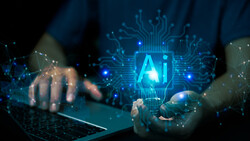
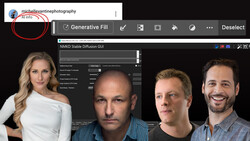

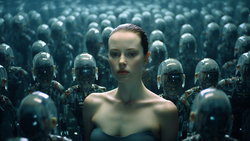
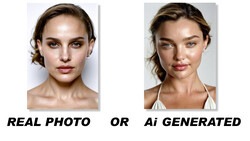
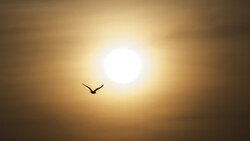
10 Comments
Has anybody asked the question why are people allowing AI to evolve and literally destroy so many industries? Not just photography but traditional art, music and video could all be taken over by AI generated content. What a totally soulless world that would be. I can understand AI as various tools to help people with certain tasks such as matching colours and exposure to speed up the process of editing large batches of photographs but replacing people altogether is a completely different matter. It's one thing to have traditional jobs taken over by machines but AI will be destroying the one thing so many people enjoy, art. Even with my digital camera I have stopped using so many of the features and simplifying the process because cameras can literally do most of the work for you now and no one really needs to learn how to expose an image if they don't want (or can't be bothered) to. We will really miss the human element once AI really takes over and that goes for all of the creative industries.
Seems like this would only affect those who shoot "art" photos. Wouldn't there still be a need for event photographers, et al.? I've noticed a steadily decreasing demand for professional photography anyway.
I think it will also effect advertising, corporate, and headshot photographers very soon. Basically anything that isn't capturing an actual event will be destroyed
I shoot a lot of specific products, mainly furniture. I doubt that AI will be able to make a specific product up, with the right style, details, fabrics and all. Same with jewelry, clothing, shoes, new cars, new parts, etc. AI can only make up things from what it has been trained on. It's not that smart. It can make a portrait but only if you provide it 10 or more pictures of the person, which kind of defeats the point. There are a lots of situations where missing details are always going to be a problem.
If those companies have no problem stealing your photos for their models, they will have no issue at all selling the pictures you upload to "create" your portrait with all the details you send in the transaction. Do it at your own risk, but even if you pay them $1, you are the loser because they'll use your photos to trade and generate additional income you will never be able to value properly and more importantly, you'll never know about.
The other thing is that you can't copyright AI generated images. So you can sell one but you are never able to guaranty some level of exclusivity to your client since if I grab it I can use it as is. Get a lawyer if you mess with AI because some "artists" are going to pay for it down the road while these companies are cashing in.
Right now the no copyright thing, is saving lots of jobs I hope it holds up
Just go on an automotive site where you can build your car. Interior and exterior. No catalogue or photographer needed. Cuts out a lot of jobs.
That's because that option never existed before apart from in text. It doesn't remove the photography and in fact car manufacturers probably haven't dropped much of photography use. For example, you get post cards from them in the mail, something that never exist pre-digital. They run adds in magazines, billboards... Not everything is low resolution, but they do use CGI and AI. Most of this adds to more production and faster cycles. There are still things that can be cheaper to shoot because when the concept is clear you can involve all the needed people in a project at once and then you are done because of planning and knowledge. So yes it can take a little time upfront for coordination, but your photos can be ready for use in no time after that, including retouch and some light AI if needed. CGI is slow but can be extremely productive once basic is done. AI is instantaneous, but anything that involves randomness needs extra time reviewing and approve, meaning lots of meetings and such. The only way to speed that up is to do everything in house, but that requires more employees, more offices, more equipment and have enough work all year for all these people. Also dealing with people who quit, get sick and the creative pool stays within a small group which can be not that great compared to outsourcing that brings in a lot more creativity options. I don't think you realize how CGI alone is tedious require meeting after meeting and approvals. I can't see full AI being easier regarding approvals in big companies. Lots more randomness that CGI. Graphics are easy, but when it comes to running a business, lots more factors come in that people don't even consider or know about.
If properly and fully trained, AI should be knowledgeable on copyright and permission requests. They are obviously not or they are not intelligent at all otherwise AI would refuse to collect billions of images.
Anyone downplaying the effects that AI will have on the arts in general and photography in particular, is indeed in my opinion living under a rock.
I am not surprised by the fact that many photographers and visual artists are considering AI as a useful tool for their activity. However, they simply do not realize that they are "feeding the monster" and cutting the limb they are sitting on.
Why am I not surprised? Simply due to the fact that most social human studies of demographics done over the last 5 years have proven that only about 20% of the population posses the capabilities of critical thinking and merely follow and admire trends.
Thanks so much for this ... what an amazingly informative and more in many ways disturbing video. Most of the detail re sets and how they work and are being used is incredible provoking, as well as the concept of "there is no law or regulation we can apply to this, so we will apply our own" ... frightening.
I do not live in the US but I did see the congressional hearing (parts of it) where the makers/developers were giving testimony.... what remained in my mind is that the final speaker (can't remember the name) said that he felt the administration should step in and "help". My first reaction to this was thinking that things were probably all ready out of control.